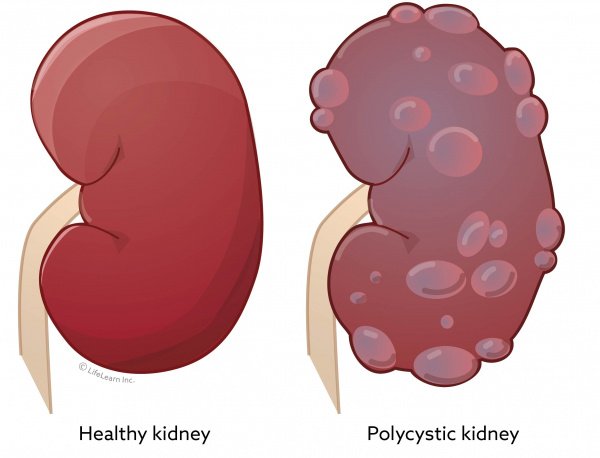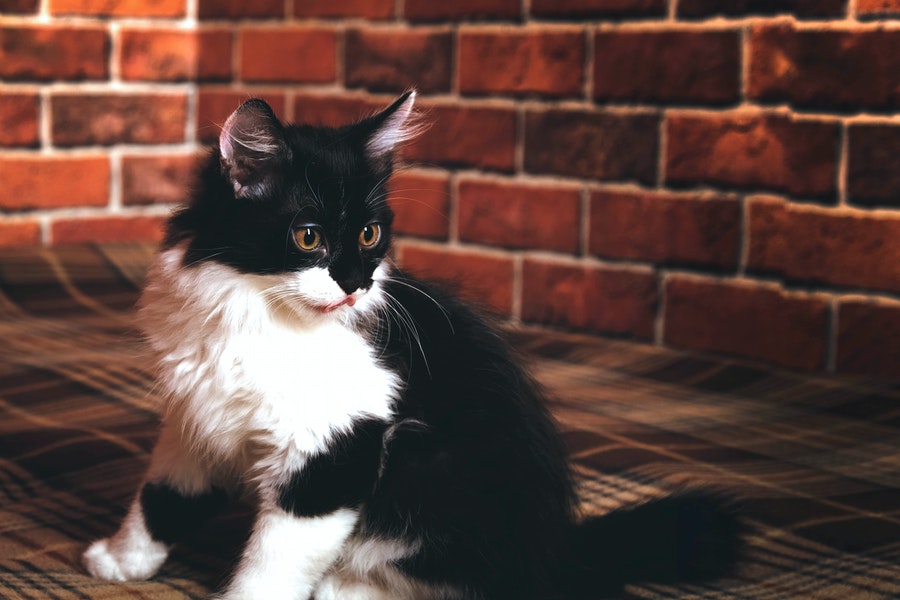Maine Coon polycystic kidney disease (PKD) is a common genetic disorder found in many different breeds of cats, but is seen most often in Maine coons.
PKD causes cysts to form in the kidneys, which can lead to kidney failure if left untreated. Early diagnosis and treatment are key to helping your cat live a long, healthy life with PKD.
This article will discuss the symptoms and treatments of PKD, as well as ways to help keep your cat healthy even if they have the disease.
What Is Maine Coon Polycystic Kidney Disease?
Polycystic Kidney Disease, also known as PKD, is a genetic disorder found in cats. It is the most common genetic disease in cats and affects around 1 in 400 cats. The disease causes cysts to form in the kidneys, which can lead to kidney failure. Symptoms of PKD include weight loss, excessive thirst and urination, and vomiting. There is no cure for PKD, but there are treatments available that can help prolong a cat’s life.
Causes Of Polycystic Kidney Disease In Cats
PKD is caused by a mutation in the PKD1 gene. This gene codes for a protein that is necessary for the normal development of the kidneys.
The mutation causes the protein to be absent or defective, which leads to the formation of cysts in the kidneys.
Symptoms Of PKD In Cats
The most common symptoms of PKD in cats are increased thirst and urination, weight loss, and a bloated appearance.
Other symptoms can include vomiting, diarrhea, lethargy, and depression. If the cysts are numerous, they can cause episodes of high blood pressure. If both kidneys are affected by PKD, it can lead to kidney failure.

Progression Of PKD In Cats
PKD is a chronic disease that progresses slowly over time. It is possible that cats with PKD will live for years without any problems before presenting signs of illness related to the disorder.
The average age at which clinical signs become evident is 8-10 years old, but some cats don’t present symptoms until they are 10-12 years old or older.
Diagnosis Of PKD Mutation In Cats
Polycystic kidney disease in cats has been studied extensively and there are now genetic tests available to determine if a cat has PKD1.
There are also tests that can determine if the PKD1 gene has a mutation and, therefore, whether or not a cat is a genetic carrier of PKD.
Treatment Of PKD In Maine Coons
Unfortunately, there is no treatment for polycystic kidney disease in cats. However, we can try to manage its symptoms and maintain quality of life until the end comes.
Fluid Injections
Fluid therapy helps a cat with PKD because the extra fluids help keep the kidneys functioning properly.
When a cat’s kidneys don’t work well, they can’t get rid of enough toxins and water, which can cause serious health problems.
By giving the cat extra fluids, you’re helping to flush out those toxins and keep your kitty healthy.
Monitor Weight Carefully
One of the main concerns for cats with polycystic kidney disease is their weight. It is important to monitor their weight carefully, as fluctuations in weight can be a sign that the disease is progressing.
If a cat’s weight drops too low, they may require hospitalization for treatment.
Conversely, if a cat becomes overweight, they may be more at risk for developing other health problems.
A Prescription Diet
A cat with PKD is given a prescription diet which is a specially formulated food in order to help them manage the condition.
The diet is designed to be low in protein and phosphorus, which can help to slow the progression of the disease.
Check Blood Pressure Regularly
One of the key benefits of checking a cat’s blood pressure regularly when they have polycystic kidney disease is that it can help to identify any potential health problems at an early stage.
This means that any necessary treatment can be started promptly, which can help to improve the cat’s overall quality of life.
Additionally, regular blood pressure checks can help to ensure that the cat’s blood pressure is kept within a healthy range.
Prepared For Anemia
Polycystic kidney disease can cause anemia in cats due to bleeding inside the body.
By preparing for anemia, you can ensure that your cat receives the necessary treatments and blood transfusions if needed.
Maine Coon Polycystic Kidney Disease – Available Testing
There is no specific testing available for cats with polycystic kidney disease. However, blood and urine tests can be used to help diagnose the condition.
Imaging tests, such as ultrasound or x-rays, may also be used to help determine if a cat has polycystic kidney disease.
Additionally, genetic tests can be carried out to check if the cat has inherited the disease.
Blood And Urine Tests
Some vets use blood and urine tests to detect polycystic kidney disease in cats, but the results can vary depending on the particular test that is used.
Because this is not always 100% accurate. They often need to carry out other tests.
Ultrasound Scan
Ultrasound scanning is a very important diagnostic tool in cats with polycystic kidney disease.
The ultrasound scanner sends out high-frequency sound waves, which reflect off body tissues and create an image of the inside of the body on a computer screen.
This image can be used to help identify the size, shape, and location of the cysts in the kidneys.
Genetic Testing
A genetics test for polycystic kidney disease (PKD) in cats is typically carried out through a blood test.
The blood sample is analyzed in a laboratory to look for specific gene changes that are associated with the disease.
Life Expectancy Of Cats With Kidney Disease?
Most cats with kidney disease will live for one to two years after the disease is diagnosed. However, some cats can live for up to five years or more with treatment.
The lifespan of cats with kidney disease depends on how early it is diagnosed, its severity, and whether treatment can be provided.
A veterinarian may recommend dietary changes, medication, or even surgery to help your cat cope with his or her condition.
Cats that are born with PKD will typically have a shorter life expectancy than cats that develop it later on in life.
Common Maine Coon Health Issues
The Maine coon health issues are mainly genetic.
Some of the health issues that are common in the Maine coon breed include hip dysplasia, hypertrophic cardiomyopathy, and spinal muscle atrophy.
There are also some eye issues that can occur in the breed, such as progressive retinal atrophy and cataracts.
Conclusion
Polycystic kidney disease is a serious genetic disorder that can cause renal failure and death in cats.
If you have a Maine Coon cat, it’s important to get them tested for PKD as early as possible so treatment can be started if they are diagnosed with the disease.
There is no cure for PKD, but there are treatments available that can prolong your cat’s life. Early diagnosis and treatment are essential for cats with PKD, so please get your kitty checked out if you suspect they may have this disease.
Elliot is the owner and lead writer at Lais Lairs. He is the proud owner of a Maine Coon/Siberian Mix cat named Lai. His oldest cat lived to be 18 years old so he’s learned a thing or two about keeping pets. When he’s not writing you can find him playing video games or playing fetch with Lai.
